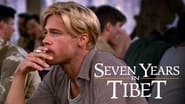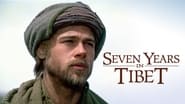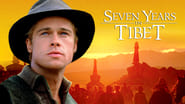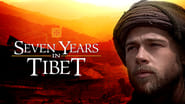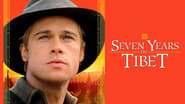emmagoodwin-19771
This was a controversial film upon release and if I am not wrong its outright banned in China. It's a good film based on the real experiences of an Austrian explored and the dalai lama during some difficult period in Tibetian history(basically Chinese Occupation). Brad Pitt plays the lead character and is pretty alright. David Thewlis plays his mate. The child playing the young Dalai Lama steals the show though and the scenery of Tibet is a plus point. Great topic but an average film.
tieman64
"It is better to travel well than to arrive." - Buddha Based on a true story, Jean-Jacques Annaud's "Seven Years in Tibet" stars Brad Pitt as Austrian mountaineer Heinrich Harrer. As he lived in Tibet between the years 1944 and 1951, Harrer witnessed China's "invasion" of Tibet. This "invasion" forced the 14th Dalai Lama, Tibet's spiritual leader, to flee into India. "Seven Years" was released in 1997, the same year as Martin Scorsese's "Kundun". Both films present idealised portraits of theocratic, late-feudal Tibet. They romanticise Buddhism, fawn over the Himalayas, and pine nostalgically for Tibetan customs and traditions. In the hands of Annaud and Scorsese, the more radical and so interesting aspects of Buddhism are also ignored. Orientalism (portrayals of the East by the West which generally exhibit cultural bias and/or ignorance) typically represents Eastern cultures as inscrutable and mysterious. The West is offered as a bastion of logic, empiricism and science, whilst Eastern cultures are deemed esoteric, mystical and superstitious. In "Seven Years in Tibet", however, Harrer and the Dalai Lama take turns inhabiting the roles of "student" and "teacher". Elsewhere they ridicule each other's fussy customs and traditions, whilst also displaying a shared interest in science, geography and engineering. This is perhaps not surprising. With no holy writs, no deities, and with its interests in scientific enquiry, Buddhism's always been one of the more science-friendly "religions". Annaud's film climaxes with the Chinese army marching into Tibet and massacring Tibetan soldiers. In reality, this battle did not occur. Before his film closes, Annaud also informs us that over a million Tibetans died at the hands of "evil Chinese communists", a cooked number which most serious academics reject. Scenes like this make "Seven Years in Tibet" a covertly political film, the Dalai Llama presented as a saintly figure unjustly torn from his people and so deserving of political reinstatement. That the Dalai Lama leads only one branch of Tibetan Buddhists, and that the only people calling for his "return" are the unelected Tibetan royals who exploited Tibetans via a repressive military-ruled feudal state, are messy realities ignored by Annaud. That the Lamas speak for themselves and not the Tibetan people (just as every group of privileged exiles has turned to the United States to help them return to power, the Dalai Lama received CIA funding for a number of years), that half of Tibet's population were serfs or slaves before the Chinese arrived (the rest were under the autocratic rule of the Tibetan aristocracy), and that Tibetan peasants sided with Communists and aggressively attacked Tibetan-theocratic institutions, is likewise ignored. Indeed, Tibetan peasants were some of the most radicalised Communists in China precisely because they suffered heavily under their previous rulers. This is not to defend the actions of China – certainly the Lamas were capable of reforming Tibet themselves, certainly every populace deserves to be autonomous if it so wishes, certainly China's migration policies affect how Tibetans now vote on issues of independence – but to highlight the fact that Annaud has presented a sanitised portrait of the region.Most big films "about" Buddhism avoid the "tenets" of Buddhism. In "Seven Years in Tibet", Harrer and the Dalai Lama share a number of cute scenes, but philosophy largely remains off-topic. A better director would fully exploit the possibilities that this material lends – why does a character like the Dalai Llama, who renounces the ego, selfhood and private property care about quaint systems of land ownership and leadership? Didn't exile make the Dalai Llama a wiser man? etc – but again Annaud only cares about the superficial. The film costars Jamyang Wangchuk and David Thewlis. 7.5/10 – See "The Last Emperor", "Spring, Summer, Fall, Winter and Spring" and "Into Great Silence".
royu2
This had the foundations to be something truly special. An Austrian mountain climber leaves a dying marriage to explore the Himalayas in British India, but with the onset of World War II is forced to flea through inhospitable terrain to Tibet where he is befriended by a doomed world leader.Fantastic, how could such a unique and complex plot go wrong? Well believe me, they found a way.10 minutes into the movie and I'd already given up on the script, it was dull from the first line and barely improved after that, no point waiting for a witty or insightful remark because it isn't coming.Then there was the editing. Seemingly important scenes are over in a heartbeat while pointless scenes are dragged out. Moments that seem like big twists are immediately and coincidently reversed just 5 seconds later, it's all a bit of a mess. The film never really flows, it limps along, takes a sudden leap, then limps again.Brad Pitt isn't too bad but the supporting cast is pretty hopeless, the acting quality would barely compete with a daytime soap opera, and the elevator music soundtrack just makes thing worse.If you like a bit of culture and funky scenery then it might be worth a look, but otherwise Seven Years in Tibet will feel like seven years in solitary confinement.
steve-woller
Ever since Ronald Colman raised the bar of expectation by his not so chance encounter with Shangri-La in the 1937 movie rendition of "Lost Horizon", we have been trying to find our way back. Thanks to movies like "Seven years in Tibet", we can focus on the real issues rather than paradise revisited.With the release of the movie version of Heinrich Harrer's "Seven Years in Tibet" we are presented with a different story - one less fairly tale...Jacque Annaud's...film allows us to move away from the fantasy created by "Lost Horizon"... Annaud succeeds in bringing Tibet to life, to make it more human, more real.As much as the story is Harrer's, it seems inevitable that the focus moves away from him and onto the Dalai Lama. The book reads like an outsider looking at things from the outside in. The focus of the book, is all Harrer. Luckily, film has an ability to visualize the books cannot ever provide - a real immediate feel. The movie is everything and it at times almost feels like it will slide into Indiana Jones. However, the power of Tibet saves it. It almost feel like Pitt and Thewlis are out of place. The real stars are the set, the landscape and the Nepalese extras. Filmed everywhere but Tibet, the film does give its western audience a real soft landing, one that they will not get with Scorsese's "Kundun"... Hollywood does need to supply a demand and we demand epic scenes, high priced talent, a sense of the exotic. As if east meets west and the fusion of the two is greater than the sum of the parts. For the attention to detail, I can't help but sing the praises. If you can stomach Pitt's fake Austrian accent, the film is a visual delight. It would be a tempting fantasy to hope that we can preserve it...
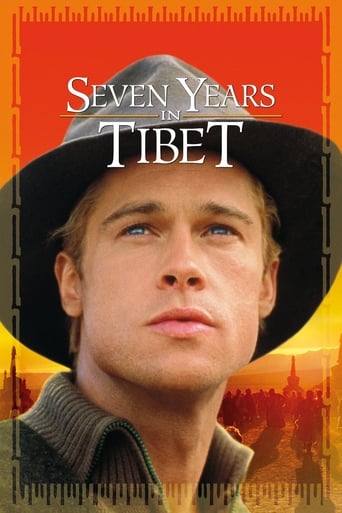
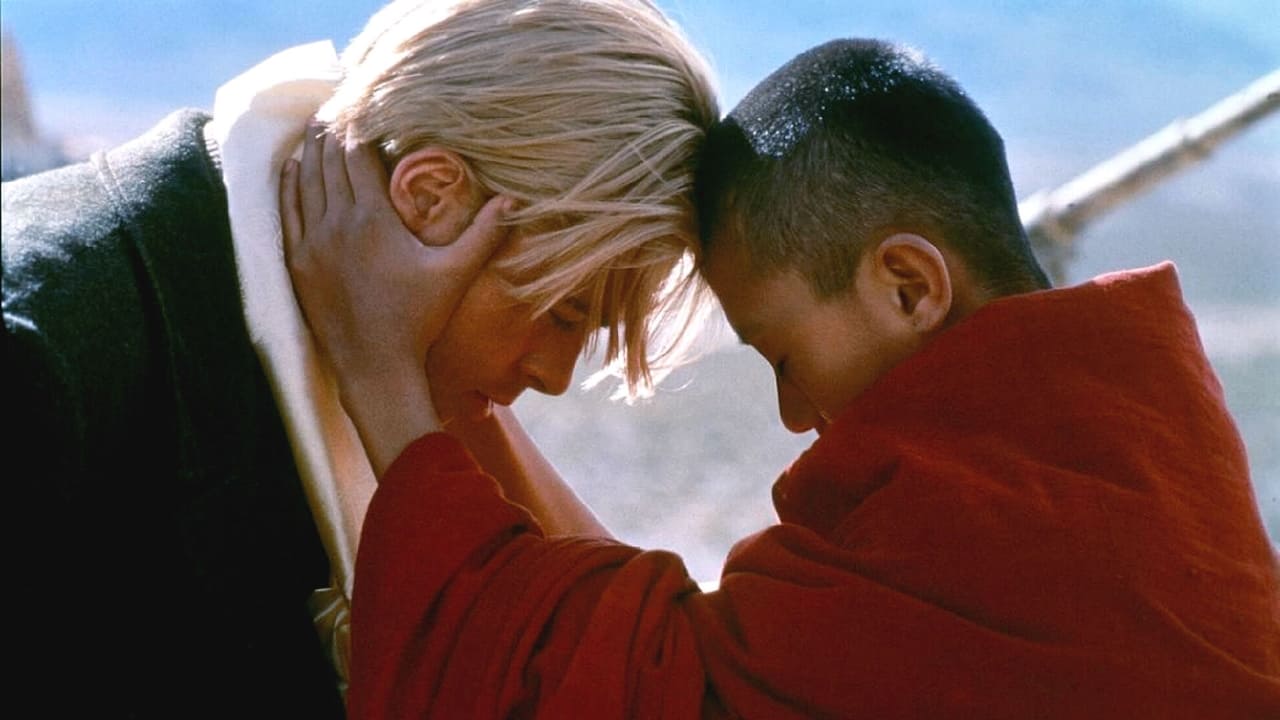

 AD
AD



